Has Leadership Become Too Serious?
(And three simple suggestions to experiment with if you think it has)
Last week working on a project with one team, as we often do, we checked in on the story of the future to make sure we were on track.
The question we used was:
“What do we need to do to so that {the project} is successful?”
One of the team offered a variant on the question which was:
“What do we need to do to so that {the project} is successful and that we love spending our time working on?”
It caught the mood of the team and shifted the conversation in a way that was lighter, a bit more playful while keeping the focus on what’s important.
It got me thinking.
Every organisation out there has a laundry list of challenges to overcome. They trip off the tongue all too easily:
How do we navigate an uncertain and changing world;
How do we drive innovation and adapt to change
How do we manage ourselves and our teams in times that demand greater resilience
What skills do we need to develop as a team to tackle the future
How do we become more sustainable and play our part of in tackling wider issues in the world.
It’s quite easy to be sucked into a vortex of serious and focusing on the many challenges.
Research published in the Harvard Business Review suggested that “fun” is essential to a great work culture.
Fortune magazine run an annual 100 Best Places to Work For list that surveys employees and ranks them based on a view of what a great employee experience looks like — measured in terms of high levels of trust, respect, credibility, fairness, pride, and camaraderie.
The statistics were similar year to year. Eighty-one percent of employees at companies ranked as “great” described their office environments as fun.
Fun of course means different things to different people and what someone might think is fun, others will think of as cringe worthy. It’s about finding things that resonate best across your team.
Here’s three simple ideas for you to consider experimenting with:
1) Cross Silo Creative Thinking Projects
At a previous business, our brilliant COO came up with the idea of two people each month (both from different parts of the business) spend up to a day playing with and working on an idea that interests them both. They have to then present the ideas back to the business for 15 minutes and engage the wider team in a discussion. The topics were specifically non work ones.
We had some amazing ideas being brought back - science experiments and findings from new creative fields spring to mind. The beauty of it was that it stretched thinking collectively, it was fun, it encouraged creativity, it was engaging and encouraged cross silo working.
Why not get two people to explore as many creative ways of how you can use AI to {overcome xyz challenge}. Or find a cutting edge breakthrough in a completely unrelated field and share what you could learn from that.
2) Small Language Shifts
Sometimes a small shift in language can give you a fresh perspective.
Katie Sheehan, a publishing marketing manager, described how simply changing the title of her “To-Do List” into a “Fun List” shifts her mindset from, “I need to check these things off today,” to “I’m going to have fun today.”
Or rather than having a To Do List, have a WHO list. Who will you show up as today. Think about a fun identity or story of who you could show up as.
3) Micro Celebration Moments
Become more conscious of celebrating wins, especially small wins. Perhaps carve out a few minutes each week to notice wins by other people and shine a light on them. Give someone a Mars Bar and a hand written note to say “I loved what you did there - that really inspired me”. Bet you that if you did that, that person would still remember that moment a decade from now. Unexpected things resonate more strongly.
The challenges we all face are real and serious and need attention and focus. That doesn’t mean we can’t approach them with a sense of fun, inventiveness and play. You can always default back to serious but perhaps, just perhaps it’s something worth playing with.
